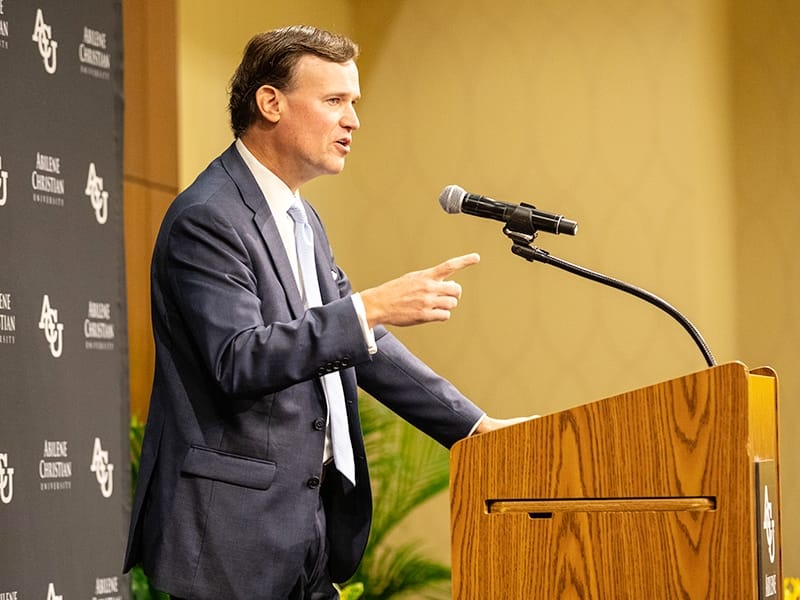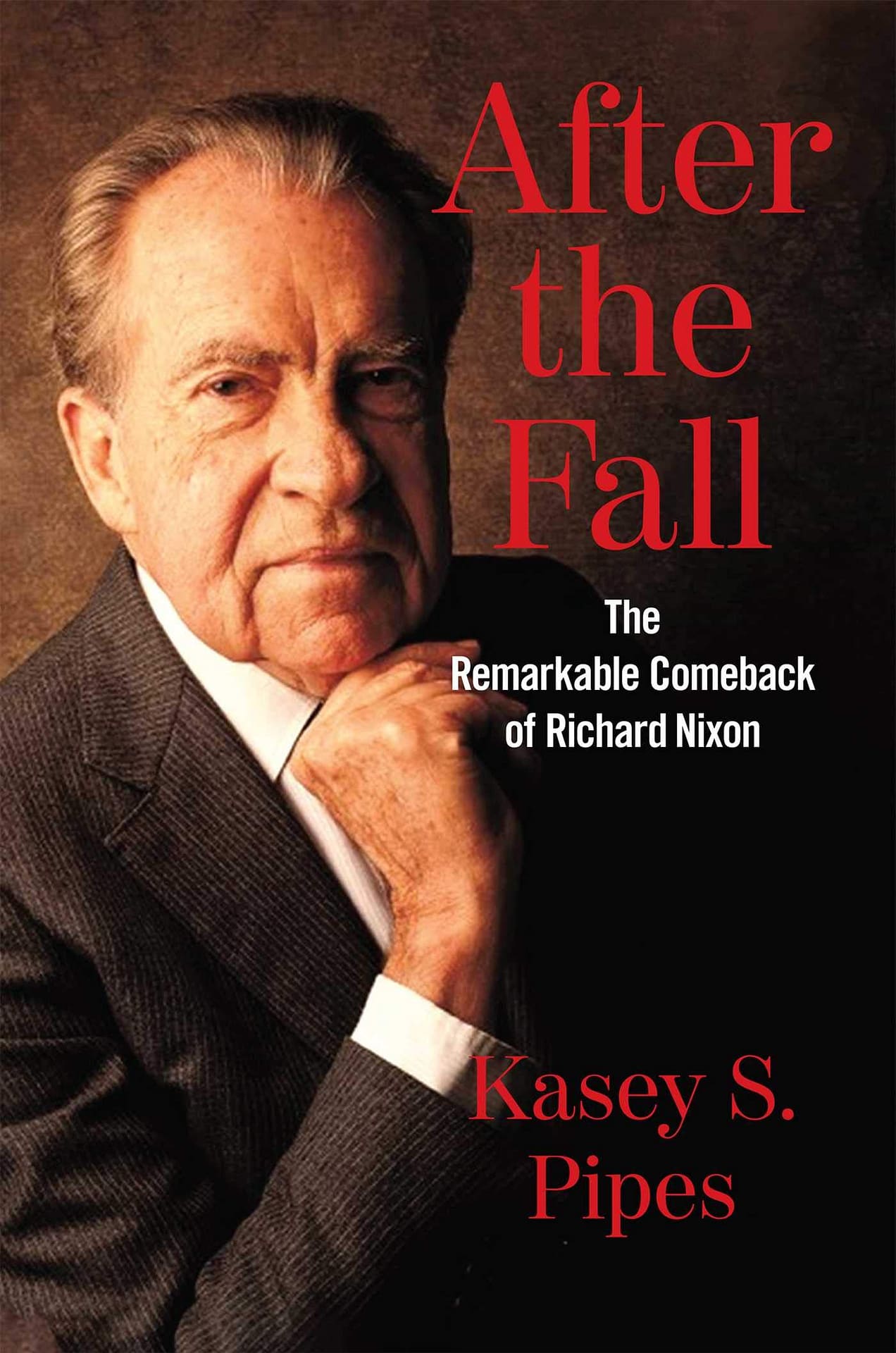Enlarge

Photo by Scott Delony
Pipes is partner and co-founder of Corley + Pipes, a consulting firm with offices in Fort Worth, Texas, and Washington, D.C. He specializes in media relations, coalitions, campaigns and issue management, and also serves as the Norris Public Policy Fellow at the Eisenhower Institute.
He was the featured speaker Monday at a campus luncheon sponsored by Abilene Christian University’s Center for Building Community. Pipes talked about his fascination for discovering “untold stories,” especially those in his new book, After the Fall: The Remarkable Comeback of Richard Nixon, which is based on his exclusive access to the private post-presidency papers of the 37th president.
Among many other anecdotes, Pipes’ presentation was framed by the juxtaposition of three publicly flawed men, two of whom were the unlikely eulogists of one another: Nixon’s remarks in 1987 at the memorial service for former Ohio State University football coach Woody Hayes, and Bill Clinton’s on behalf of Nixon in 1994.
Most everywhere outside of Ohio, Hayes was reviled as the czar of Buckeye football who lost his job after punching a Clemson University player on national TV during the 1978 Gator Bowl, one of several episodes of hot-tempered behavior in his career. Inside Ohio and on the OSU campus, however, he was beloved as a professor of military history who mentored students, was revered in the community, and was inducted five years after his firing to the College Football Hall of Fame.
Chief among speakers at Hayes funeral was Nixon, who befriended the coach years before and knew him privately as a kindred spirit and humanitarian. He summarized Hayes’ days of darkness and redemption when he concluded, “Two thousand years ago, the poet Sophocles wrote: ‘One must wait until the evening to see how splendid the day has been.’ We can all be thankful today that in the evening of his life, Woody Hayes could look back and see that the day had indeed been splendid.”
Clinton – the 42nd president who was impeached by the U.S. House of Representatives and acquitted by the Senate in 1999 before serving the balance of his second term – eulogized Nixon.
“As a public man, he always seemed to believe the greatest sin was remaining passive in the face of challenges, and he never stopped living by that creed. He gave of himself with intelligence and energy and devotion to duty, and his entire country owes him a debt of gratitude for that service,” Clinton said. “Oh, yes, he knew great controversy amid defeat as well as victory. He made mistakes, and they, like his accomplishments, are a part of his life and record. … May the day of judging President Nixon on anything less than his entire life and career come to a close.
Pipes recounted the ways in which Nixon eventually reinvented himself and the American post-presidency. He wrote 10 books – nine of them best-sellers, appeared in a series of interviews with David Frost that set TV audience records, and was paid for speeches. He became a trusted advisor to Clinton and Bush in international matters. Most important, he changed himself, apologizing constantly to friends for moral transgressions that grieved him, and regaining some of his stature as a statesman.
Nixon battled self-doubt and depression after resigning the presidency to avoid certain impeachment over the infamous Watergate scandal. He surprised the world by attending the funeral of his former political foe, former U.S. vice president and Minnesota Sen. Hubert H. Humphrey, in Nixon’s first public appearance following his departure by helicopter from the South Lawn of the White House nearly four years earlier.
“Only when you have been in the deepest valley can you ever know how magnificent it is to be on the highest mountain,” Nixon said wistfully in a farewell address to his family and staff on his last day as the nation’s CEO, Aug. 9, 1974.
That same day, he signed a one-sentence letter: “I hereby resign the office of the president of the United States.” He turned the job over to Vice President Gerald R. Ford, who later pardoned him.
As Pipes recounts, Nixon retreated to California to go about what became the final 20 years of a noteworthy yet complicated life. Along the way, he changed the post-presidency for seven men who have followed him.
“He was a remarkably resilient person,” Nixon’s latest biographer said, “who viewed life, philosophically, as a series of battles.”
Some lost, some won, Pipes concluded.
Find his new book on Amazon.

